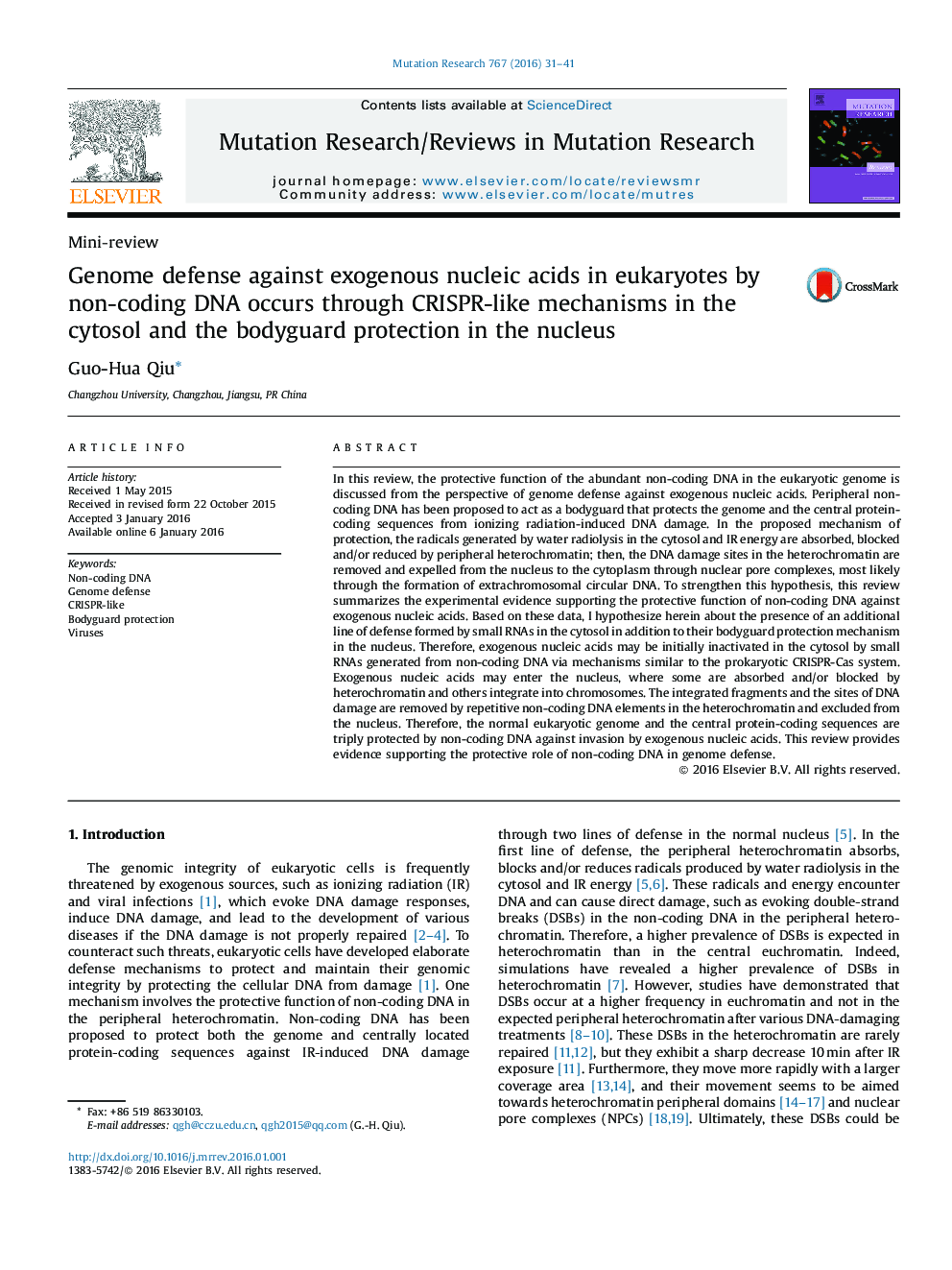| Article ID | Journal | Published Year | Pages | File Type |
|---|---|---|---|---|
| 2149618 | Mutation Research/Reviews in Mutation Research | 2016 | 11 Pages |
In this review, the protective function of the abundant non-coding DNA in the eukaryotic genome is discussed from the perspective of genome defense against exogenous nucleic acids. Peripheral non-coding DNA has been proposed to act as a bodyguard that protects the genome and the central protein-coding sequences from ionizing radiation-induced DNA damage. In the proposed mechanism of protection, the radicals generated by water radiolysis in the cytosol and IR energy are absorbed, blocked and/or reduced by peripheral heterochromatin; then, the DNA damage sites in the heterochromatin are removed and expelled from the nucleus to the cytoplasm through nuclear pore complexes, most likely through the formation of extrachromosomal circular DNA. To strengthen this hypothesis, this review summarizes the experimental evidence supporting the protective function of non-coding DNA against exogenous nucleic acids. Based on these data, I hypothesize herein about the presence of an additional line of defense formed by small RNAs in the cytosol in addition to their bodyguard protection mechanism in the nucleus. Therefore, exogenous nucleic acids may be initially inactivated in the cytosol by small RNAs generated from non-coding DNA via mechanisms similar to the prokaryotic CRISPR-Cas system. Exogenous nucleic acids may enter the nucleus, where some are absorbed and/or blocked by heterochromatin and others integrate into chromosomes. The integrated fragments and the sites of DNA damage are removed by repetitive non-coding DNA elements in the heterochromatin and excluded from the nucleus. Therefore, the normal eukaryotic genome and the central protein-coding sequences are triply protected by non-coding DNA against invasion by exogenous nucleic acids. This review provides evidence supporting the protective role of non-coding DNA in genome defense.
